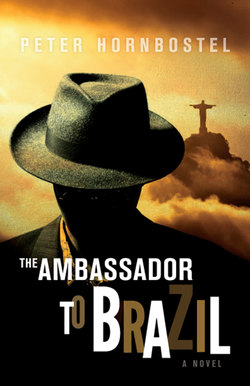Читать книгу The Ambassador to Brazil - Peter Hornbostel - Страница 6
На сайте Литреса книга снята с продажи.
ОглавлениеCHAPTER 3
Actually, he had. Just before Carnaval, Gabriel Ferreira, General Counsel of AMFORP, the American-Foreign Power Company, had invited Carter and Priscilla to watch the Carnaval parade on Saturday night from AMFORP’s offices on the Avenida Presidente Vargas. “It’s better for you, Mr. Ambassador,” Ferreira said, “air-conditioned, safe, not so smelly.” The Carters quickly accepted.
The parade had already started when he and Priscilla arrived. “Don’t worry,” Ferreira said in his perfect English, “you haven’t missed much. And the parade goes on until tomorrow morning at four. Then it’ll pick up again at eight. Would you like a whiskey? A caipirinha, perhaps? Of course, we have soft drinks for the wives, too,” he said, looking at Priscilla.
Carter looked around the room. Several foreign businessmen were there. He nodded across the room to the vice president of First National City Bank. Hans Klaus, president of Volkswagen do Brasil, was chatting in the corner with another gringo Carter didn’t know. The president of General Electric had brought a beautiful Brazilian girl, clearly not his spouse. There were no other Brazilians. All but the girl were foreigners.
Carter grinned at his host. “Don’t you Brazilians do Carnaval?” he asked. “Only us gringos?”
“Well,” Ferreira answered, “it depends on which Brazilians. Carnaval is the people’s holiday, not ours. It’s only four and a half days, once a year. They deserve at least that. So we get out of their way. We go to our summer places in Petropolis or Terespolis, or Buzios … .”
“But I don’t get it,” Carter said. “Thousands of Americans come to Rio every year, just to see the Carnaval parade.”
“Are you sure that’s all they come for?”
Carter looked puzzled.
“Look,” Ferreira said, “have I ever told you my definition of Carnaval?”
Carter nodded no.
“Well,” Ferreira said, looking over to the window. “To me Carnaval is that time of year when thousands of fools try desperately, under impossible conditions, to do what it is so easy to do here the rest of the year under ideal conditions.” He smiled. “So I leave,” he added, “except when I must be here to host this little party. But that’s a pleasure, of course.”
“That’s very gracious of you,” Carter said.
The glass in the windows had begun to rattle, and Carter could hear the samba beat of a new group of drummers making their way down the avenue. “Come look,” Ferreira said, making his way to the window. “That’s what you are here for, after all, even if some of your countrymen are looking for something else.”
Nine black drummers dressed in shimmering green costumes had stopped in front of the building and were firmly hammering out a samba rhythm. A younger man, somewhat lighter in color, danced nearby playing a large tambourine. Another was passing a short stick over what seemed to be some kind of wooden tube. Another was playing a tambourine. There were no other musical instruments. The audience was enthusiastically singing a samba. Swirling around the drums were several hundred dancers, their skins of every shade of brown and black, dancing to the music of the drums. Many of them were dressed in glistening costumes apparently made of green and purple rayon, spotted with shiny golden stars. Several of the male dancers had giant golden wings attached to their shoulders. Everyone was beautifully costumed.
In the midst of the dancers, a float moved slowly down the avenue. It looked to Carter something like a wedding cake with a pier sticking out the front. On the first layer, a number of dancers, more skilled than those on the avenue, swirled gracefully in and out of each other’s arms to the rhythm of the drums. On the pier, a slim couple dressed in formal attire of purple and green danced a complex set of samba steps.
On the next level up, four scantily clad young women swayed at the centers of four large silver stars marked N, O, S, and L, which, Carter assumed, stood for north, west, south, and east. A giant gold column rose from the center of the second level to support the smaller third level on which a beautiful brown-skinned girl stood, waving regally to the crowd. She was dressed only in a long shimmering tail of blue-green fabric covered with small blue mirrors. Her breasts were bare.
“That’s the Bangu Samba School,” Ferreira said. “They won the Carnaval competition last year.”
“I’m not surprised,” Carter replied.
“She’s Yemanja,” Ferreira added, nodding to the float, “the fish-tailed Goddess of the Sea. Perhaps our most important goddess. All of us in Rio respect her, even those who don’t practice Macumba.”
Carter looked puzzled.
“Macumba is based mostly on African religions.” Ferreira went on, “It is practiced by a lot of our people who are poorer and of African descent. Not many wealthier people are followers. But many of us go down to the beach on New Year’s Eve, when Yemanja is said to pass closest to shore, and throw flowers into the surf, just to cover our bets.”
“If that’s what she looks like,” Carter said, “I’d throw flowers, too.”
